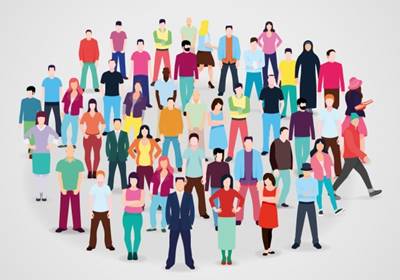
Table of Contents
Baby Boomer
What is a Baby Boomer?
The term "Baby Boomer" refers to individuals born during the post-World War II baby boom, which occurred between 1946 and 1964. This generation represents a significant demographic cohort, particularly in developed nations like the United States, Canada, Australia, and Western European countries. Baby Boomers played a pivotal role in shaping the modern world and continue to have a profound impact on global economies, cultures, and societies.

Baby boomers is a term referred to the demographic unit of people born between 1946 and 1964. The baby boomer generation covers a significant part of the world population, especially in countries that are developed.
Key Characteristics of Baby Boomers
Baby Boomers grew up during a time of immense social, economic, and political transformation. Here are some defining characteristics:
Population Growth:
The Baby Boomer generation experienced an unprecedented population surge. For instance, in the United States alone, nearly 76 million Baby Boomers were born, significantly impacting infrastructure, education systems, and housing markets.
Economic Prosperity:
They were born into an era of post-war Economic Growth, marked by rising incomes, expanding middle classes, and increased consumerism.
Technological Transition:
Baby Boomers witnessed revolutionary technological advancements such as the television, the personal computer, and space exploration.
Social Movements:
This generation was at the forefront of critical social changes, including the Civil Rights Movement, Women’s Liberation Movement, and anti-war protests during the Vietnam War.
Retirement Trends:
Today, Baby Boomers are reaching retirement age, leading to significant shifts in healthcare, pension systems, and the workforce.
Generational Context: Baby Boomers vs Other Generations
To better understand Baby Boomers, it’s essential to compare them with other generational cohorts:
| Generation | Birth Years | Key Traits |
|---|---|---|
| Silent Generation | 1928 - 1945 | Traditional, disciplined, and conservative |
| Baby Boomers | 1946 - 1964 | Optimistic, competitive, and goal-oriented |
| Generation X | 1965 - 1980 | Independent, adaptable, and skeptical of institutions |
| Millennials | 1981 - 1996 | Tech-savvy, collaborative, and value-driven |
| Generation Z | 1997 - 2012 | Digital natives, socially conscious, and entrepreneurial |
Talk to our investment specialist
Impact of Baby Boomers on Society
1. Economic Contributions:
Baby Boomers were instrumental in driving economic growth throughout the 20th century. Their spending habits shaped industries like housing, automobiles, and consumer goods. Today, they hold a significant share of global wealth, especially in Real Estate and investments.
2. Cultural Influence:
From rock ‘n’ roll to the counterculture movement, Baby Boomers revolutionised music, art, and literature. Iconic figures like The Beatles, Bob Dylan, and Martin Luther King Jr. emerged during their prime.
3. Workforce Transformation:
Boomers redefined career aspirations, prioritising job stability and upward mobility. They also challenged gender norms by advocating for women’s participation in the workforce.
4. Healthcare and Ageing:
As Baby Boomers age, they have created unprecedented demand for healthcare services, innovations in elder care, and advancements in medical technology. Their retirement has also led to discussions about the sustainability of social security and pension systems.
Challenges Faced by Baby Boomers
Healthcare Costs:
Age-related illnesses such as arthritis, diabetes, and cardiovascular diseases are common, increasing the burden on healthcare systems.
Economic Pressures:
Despite their wealth, many Baby Boomers face financial challenges due to insufficient retirement savings, increasing living costs, and supporting younger family members.
Technological Adaptation:
While some Baby Boomers embrace technology, many struggle with the rapid pace of digital transformation.
Baby Boomers in India
In India, the Baby Boomer generation holds unique characteristics due to the country's socio-economic context during 1946–1964. This period marked significant milestones such as:
India’s Independence (1947):
The generation born immediately after independence witnessed the challenges of nation-building.
Green Revolution:
Baby Boomers played a key role in modernising India’s agricultural practices.
Economic Liberalisation:
By the 1990s, Baby Boomers were active participants in India’s transition to a global Economy.
FAQs About Baby Boomers
Why are they called Baby Boomers?
A: The name comes from the "baby boom" period when birth rates surged dramatically after World War II.
How old are Baby Boomers today?
A: As of 2025, Baby Boomers are between 61 and 79 years old.
What is the Baby Boomer generation known for?
A: They are known for their significant contributions to economic growth, social movements, and technological advancements.
Conclusion
Baby Boomers represent a generation that has profoundly shaped the world we live in today. From their influence on economies to their pivotal role in cultural revolutions, their legacy is undeniable. As they continue to age, their needs and challenges present opportunities for innovation in healthcare, technology, and policy-making. Understanding Baby Boomers is crucial for appreciating the past and planning for a sustainable future.
All efforts have been made to ensure the information provided here is accurate. However, no guarantees are made regarding correctness of data. Please verify with scheme information document before making any investment.





